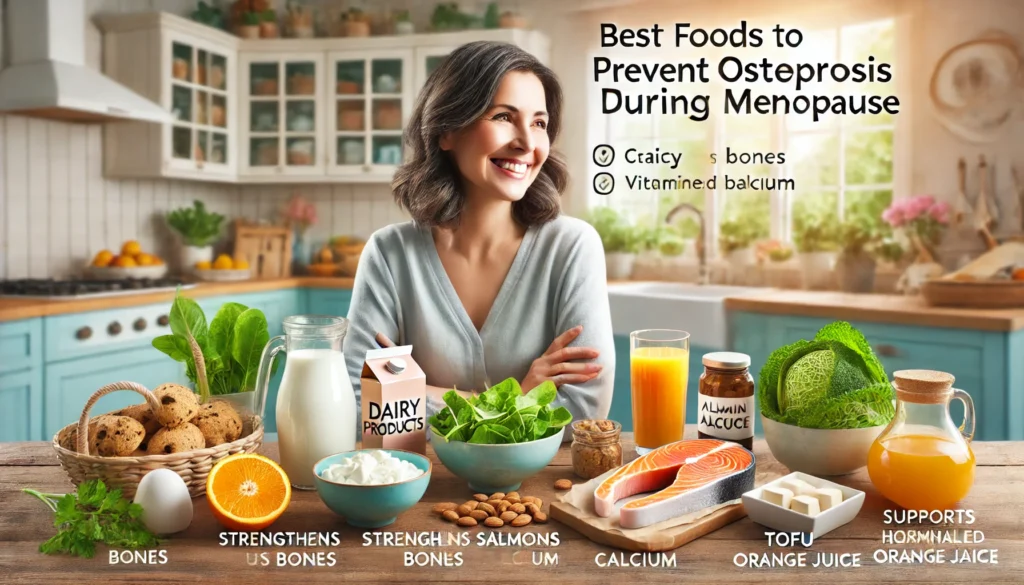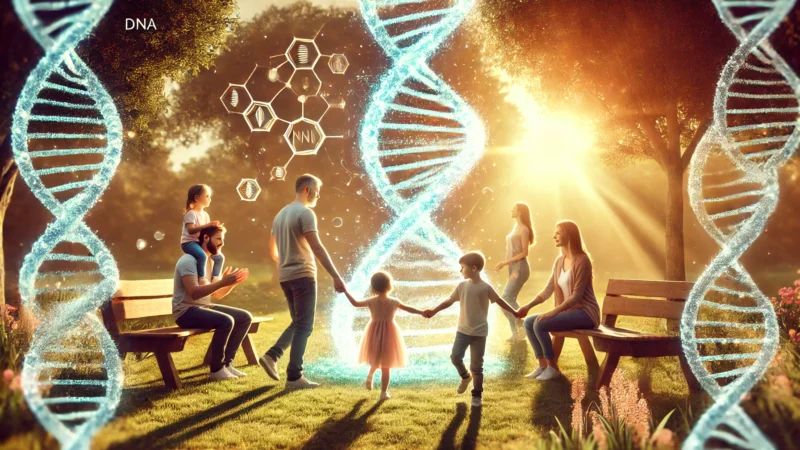Best Foods to Prevent Osteoporosis During Menopause
Osteoporosis is a serious health concern that many women face during menopause. The decline in estrogen levels leads to reduced bone density, increasing the risk of fractures and affecting overall quality of life. However, adjusting one’s diet can help lower this risk. Below are the foods that should and should not be consumed to protect bone health during this stage.

Foods to Eat
1. Dairy Products
Milk, cheese, and yogurt are excellent sources of calcium, an essential mineral for strong bones. These dairy products also contain vitamin D, which helps the body absorb calcium more effectively. Women going through menopause should incorporate dairy into their daily diet to maintain bone density.
2. Fatty Fish
Fish such as salmon, mackerel, and herring are rich in omega-3 fatty acids, vitamin D, and calcium. Omega-3 helps reduce inflammation and supports bone health, while vitamin D enhances calcium absorption. Consuming fatty fish 2-3 times a week can help protect against bone loss.
3. Nuts and Seeds
Almonds, chia seeds, flaxseeds, and sunflower seeds provide vitamin E, magnesium, and calcium, all of which contribute to bone health. Magnesium plays a crucial role in calcium metabolism, and vitamin E acts as an antioxidant to protect bone cells. Adding a few spoonfuls of nuts and seeds to meals can help strengthen bones.
4. Protein-Rich Foods
Lean meats, eggs, beans, and soy-based products provide the necessary protein for maintaining and repairing bone structure. Protein supports collagen production, which is vital for bone tissue. Ensuring sufficient daily protein intake helps prevent bone and muscle loss.
5. Dark Leafy Greens
Spinach, kale, and broccoli are loaded with calcium, vitamin K, and other essential minerals that support bone health. Vitamin K is particularly important in forming bone proteins and reducing the risk of fractures. Adding dark leafy greens to the diet helps maintain strong bones.
Foods to Avoid
1. High-Sodium Foods
Excess salt consumption can interfere with the body’s ability to absorb calcium, leading to weaker bones. Women going through menopause should limit processed foods, canned goods, and fast food, which tend to be high in salt.
2. Alcoholic Beverages
Alcohol can negatively impact calcium absorption and interfere with bone-building cells, increasing the risk of osteoporosis. Reducing alcohol intake can help maintain bone health.
3. Caffeine
Caffeine, found in coffee, tea, and soft drinks, can reduce calcium absorption and increase calcium loss through urine. Limiting caffeine consumption is advisable for protecting bones.
4. Sugary Foods
Excess sugar intake can lower calcium and magnesium absorption, two essential minerals for bone strength. Reducing the consumption of sugary snacks and sodas can help maintain bone density.
5. Excess Animal Protein
Consuming too much animal protein can lead to increased calcium excretion through urine, negatively impacting bone health. Balancing animal and plant-based protein sources is key to maintaining strong bones.
Conclusion
Maintaining a balanced and healthy diet plays a crucial role in preventing osteoporosis in menopausal women. By incorporating calcium-rich, vitamin D, magnesium, and protein-rich foods while limiting foods that harm bone health, women can reduce their risk of osteoporosis and maintain a better quality of life.






